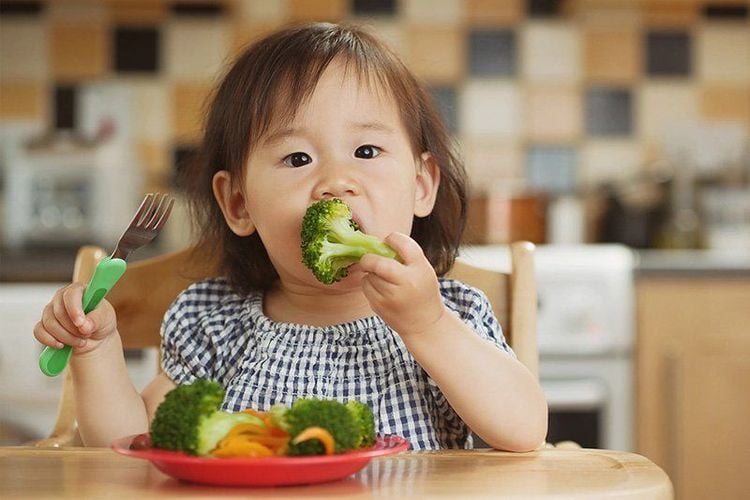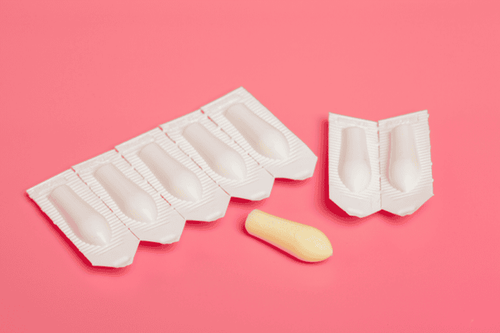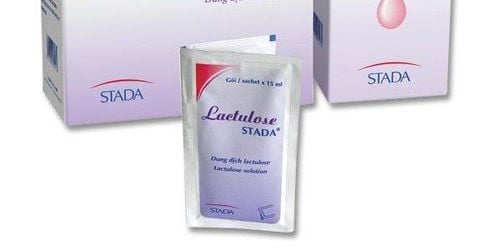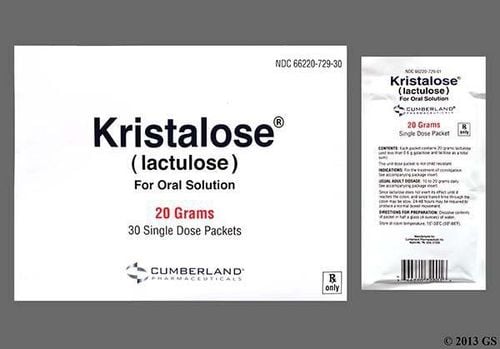This is an automatically translated article.
Using stool softeners for babies is the simplest way that many parents think of when their children experience constipation. However, how to soften stools for babies with constipation with medicine is really safe, what should parents pay attention to when using this medicine?
1. Identify children with constipation
Constipation is a condition that causes countless discomforts for sufferers, regardless of adults or children, especially for babies because at this time they still cannot speak. How to know if a child is constipated or not needs to be based on the frequency of the baby's bowel movements, usually too little and each time the baby has to push hard, causing pain, when touching the lower abdomen. The baby's stool is found to have hard lumps and solid dry stools. The following are typical signs that a child is constipated:
Children complain of pain when having a bowel movement: when a child has severe pain when passing stools, the child will be born with a mentality of not wanting to defecate often, the cause of pain This is because the stool is too dry and hard, tearing the child's anus, causing pain, even bleeding, for a long time, leading to the child not daring to defecate and making the problem of constipation worse. Children with fecal incontinence: Constipation can lead to uncontrolled fecal incontinence in children because intestinal fluid is trapped around the hard stool, causing obstruction. liquid stools. This phenomenon occurs in children with a lot of constipation, very hard stools called fecal cysts. In this case, the mother should take the child to see the doctor for instructions on the appropriate use of a stool enema. Children have abdominal pain in the area around the navel, pain often occurs in episodes, recurs many times. At this time, the use of stool softeners for children is a popular way that many parents apply to treat constipation in their children. However, when using it, parents need to be very careful.
2. What is an oral stool softener?
Oral stool softeners or softening laxatives are essentially a salt form of docusate, this is an anionic surfactant, which has the ability to reduce the surface tension of the stool mass, making it easier for water to penetrate. to the stool mass and soften the stool, the drug is used in the treatment of constipation.
Oral stool softeners also increase the secretion of fluids and electrolytes into the lumen of the small and large intestines. These oral stool softeners contain large amounts of calcium, sodium and potassium salts, they are less effective than other drugs, so they are rarely used today. Examples of oral stool softeners are: liquid paraffin, docusate (Norgalax), where liquid paraffin can leave an oily stain on your underwear if used long-term in high doses.
Oral stool softeners are usually made in the form of soft capsules, oral solution or solution/suspension of rectal enemas, drugs for local action in the large intestine. The drug is usually taken at bedtime at the recommended dose on the package or as prescribed by your doctor. When taking oral stool softeners, the patient should drink plenty of water throughout the day to make the stool softening process easier.

Dùng thuốc làm mềm phân cho bé khi con gặp phải tình trạng táo bón
3. Can stool softeners be used for children?
Oral stool softeners can be used safely in children and pregnant women because their ingredients are less absorbed into the bloodstream, so oral stool softeners are considered harmless to the body. body and child development. However, before using any medicine for children, parents should also consult a doctor carefully.
Baby stool softeners do not promote bowel movements, the drug works by helping water penetrate the stool, making the baby's stool softer and easier to pass. without straining too much, so that the baby has an easy bowel movement, with less effort and less pain.
4. Effect of stool softener for baby
Baby stool softener is a mild and slow-acting laxative that may need to be used regularly for 1-3 days to begin to feel the effects of the drug. However, stool softeners for children should only be used for a short time, usually for about 1 week, if the child's stool is still hard even after taking the medicine for 1 week, then the parents should notify the doctor. doctor for specific instructions.
5. Are there any side effects of stool softeners for babies?
Oral stool softeners or laxatives are not absorbed into the bloodstream and are well tolerated. Therefore, side effects of this drug are relatively rare.
Some possible mild side effects of stool softeners for babies include nausea, stomach cramps or bloating. Liquid preparations can cause throat irritation. When detecting abnormal signs when using the drug, parents should stop using the drug immediately.
In rare cases, oral stool softeners can cause serious side effects and require medical attention as soon as possible such as:
Difficulty breathing or swallowing; Fever; Whole body rash ; Abdominal pain, severe vomiting. Long-term use of oral stool softeners reduces the tolerability of the drug, so the dosage needs to be increased to see the effect. However, this increases the risk of serious side effects. Therefore, parents should not arbitrarily increase the dose or give the child prolonged use of the drug without a doctor's prescription.

Bổ sung nhiều chất xơ trong chế độ ăn song song với việc sử dụng thuốc làm mềm phân cho bé
6. Do stool softeners for babies interact with other medications?
Possible interactions of stool softeners for babies:
Mineral oil : Stool softeners may increase mineral oil absorption; Aspirin: Taking with aspirin increases the risk of laxative side effects; Other laxatives; Medicines containing phenolphthalein. Stool softeners for babies, though slow-acting, are effective in helping your baby limit too much straining when having a bowel movement. However, like other active ingredients, stool softeners can still cause some unwanted effects, especially drug interactions. Therefore, parents need to pay attention to issues to use drugs safely and take measures when unusual problems occur.
7. How to soften stools for babies with constipation in addition to using medicine
Instead of relying on oral stool softeners, parents can make changes in their nutrition and lifestyle to overcome problems in their child's digestive system.
Add more fiber in the diet in parallel with the use of stool softeners for babies:
This measure is both simple and safe in improving the symptoms of constipation in young children; There are 2 types of fiber: soluble and insoluble fiber, in which soluble fiber has the effect of absorbing moisture in food and slowing down digestion, insoluble fiber helps to increase stool moisture and relieve symptoms of constipation. Besides, insoluble fiber can help the body eliminate toxins; Foods high in soluble fiber include oranges, apples, carrots, oatmeal, etc. Foods high in insoluble fiber include beans, legumes, and dark green vegetables like kale. and spinach. Add plenty of water: This issue is equally important because the baby's stools will be hard and dry when the body lacks water. In addition, dehydration causes stress in the body and in turn aggravates digestive problems. Parents need to pay attention to encourage children to be more active: Exercise stimulates the digestion of food and increases bowel movements to help stool move more easily. Therefore, in addition to using stool softeners for babies, parents should encourage their children to spend about 30 minutes a day walking will help effectively improve problems in the child's digestive system.
Vinmec International General Hospital is one of the leading hospitals in the country for examination, diagnosis and treatment of digestive diseases, especially in infants and young children. With modern equipment, sterile space, minimizing the impact as well as the risk of disease spread. Along with that is the dedication from the doctors with professional experience with pediatric patients, making the examination no longer a concern of the parents.
Please dial HOTLINE for more information or register for an appointment HERE. Download MyVinmec app to make appointments faster and to manage your bookings easily.













